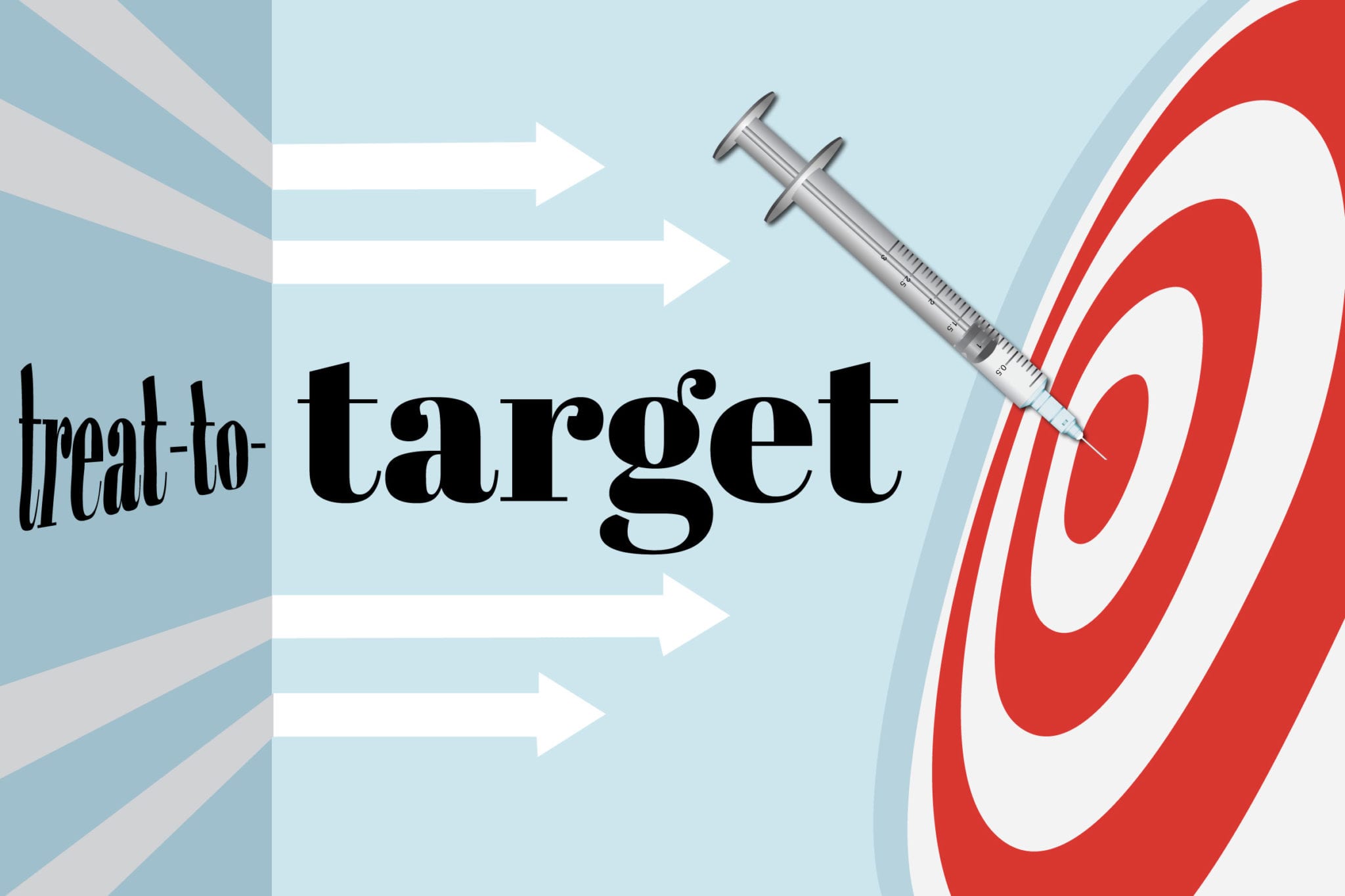

The official guidelines from the American College of Rheumatology urge doctors to use what’s called a “treat-to-target” approach for rheumatoid arthritis (RA). That entails establishing a specific treatment goal, such as remission or low disease activity, and treating a patient as aggressively as necessary to meet it.
But according to a new study, that’s not what’s happening nearly half of the time.
The new study, presented at the 2018 American College of Rheumatology/Association of Rheumatology Health Professionals (ACR/ARHP) Annual Meeting in Chicago, followed 50,996 patients from ACR’s data registry (Rheumatology Informatics System for Effectiveness, or RISE). They then homed in on a subgroup with moderate or high disease activity and reviewed the treatment those patients received during follow-up visits over the course of the following year.
What they found: 36.6 percent to 58.4 percent of RA patients with moderate or high disease activity received with the same treatment throughout the year, even though their disease activity remained elevated.
“The main impetus for the study was to understand whether rheumatologists, who routinely say that they follow treat-to-target guidelines and strive for low disease activity and remission for most or all their RA patients, are indeed doing so,” co-author Jeffrey R. Curtis, MD, MPH, professor of medicine at the University of Alabama at Birmingham, told the American College of Rheumatology in a press release. “The concern was for clinical inertia: The idea that patients may not be doing well, but treatment is not being changed to try and improve disease control.”
Dr. Curtis is also a co-principal investigator of ArthritisPower, a patient-powered research registry from CreakyJoints.
Why so many patients aren’t switching to new treatments when initial options aren’t sufficiently helping isn’t clear.
“While a number of explanations might be offered, including limitations of the current RA measurement tools and some patients being on maximal medical therapy — for example, methotrexate, biologics, and low-dose glucocorticoids — this finding is concerning,” said Dr. Curtis.
Other possible reasons might include the high cost of biologic drugs as well as side effects, either of which might dissuade some patients from taking them.
Learn About More Rheumatology Research Breakthroughs
Follow our latest ACR meeting coverage to read about the research findings that could affect your treatment, lifestyle, and overall health.
Get Involved with Patient-Centered Arthritis Research
If you are diagnosed with rheumatoid arthritis or another musculoskeletal health condition, we encourage you to participate in future studies by joining CreakyJoints’ patient research registry, ArthritisPower. ArthritisPower is the first ever patient-led, patient-centered research registry for joint, bone, and inflammatory skin conditions. You can use ArthritisPower to track your disease symptoms, share patterns with your doctor, and participate in voluntary research studies. Learn more here.





